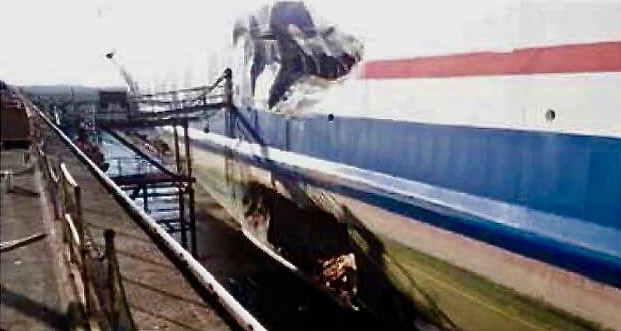Here’s a story about a collision between a tanker and a ferry in Sweden that didn’t have to happen; it basically was the result of a total miscommunication (or lack of communication) between the captains of the two ships. And the lessons learned, a result of an official investigation, apply to recreational boats as well as to larger commercial vessels.
This is what happened: At 2 am the tanker was outbound from a port at nine knots; its captain realized that an inbound ferry only 0.7 nm away was closing at about 20 knots. He called the ferry on VHF to propose they pass starboard to starboard.
The ferry’s watch captain responded negatively, but in a language the tanker captain did not understand. At this point they were closing at a speed of 29 knots and the vessels were only 90 seconds apart.
The tanker captain was still under the impression they would pass starboard to starboard; the ferry captain thought they would pass in the conventional port to port manner. He requested this on the VHF but got no response from the tanker. At this point the port’s Vessel Traffic Services warned both vessels via VHF that they were running out of time, but it got no response.
The tanker started to turn to port, since the captain was still planning for a starboard to starboard passing. He then realized the two ships would collide and he put the engine full astern, but the ships did indeed collide. (The picture above shows damage to the ferry.)
What’s interesting for those of us in recreational boating are the lessons learned as reported by the Swedish Maritime Administration investigation:
- Communications from bridge to bridge should be early, clear and unambiguous.
- The best practice is to repeat back the message that was sent to you and to ask for confirmation from the sender.
- Multitasking is a bad idea. The captain of the tanker was the sole lookout and also acting as the navigator at the time of the accident.
- Fatigue is often a factor in collisions. In this case the official report says the officers on both vessels were probably affected by fatigue. Read more:




